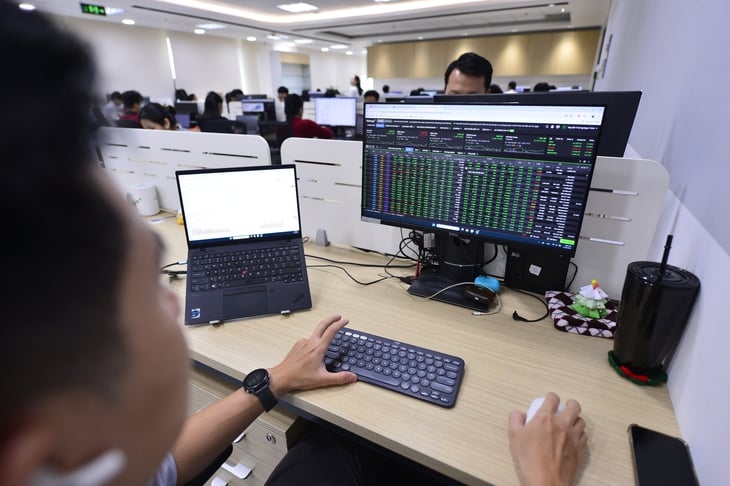
The Ministry of Finance maintains the current method of tax collection on securities transfer activities - Photo: QUANG DINH
Instead, the drafting agency, the Ministry of Finance, has kept the current collection method: applying a tax of 0.1% on the transfer value of each securities transaction.
According to the Ministry of Finance, in practice, there are problems with capital transfer activities of individuals. In many cases, the purchase price and related expenses cannot be determined. There are also cases where individuals declare the selling price equal to the purchase price to avoid paying tax.
Therefore, for capital transfer activities of resident individuals, the drafting agency still maintains the view of applying a tax rate of 20% on taxable income for each transaction. A tax rate of 0.1% will be applied on the transfer value of each transaction with non-resident individuals.
In case the cost price and related costs cannot be determined, the tax rate will be calculated at a rate of 2% on the transfer value (applied uniformly to both resident and non-resident individuals).
Previously in July, the Ministry of Finance proposed that individuals selling securities must pay a 20% tax on the difference between the selling price and the purchase price plus reasonable costs. If the purchase price cannot be determined, the taxpayer will be subject to a rate of 0.1% on the selling price each time - according to current regulations.
In fact, the Personal Income Tax Law of 2007, which took effect in 2009, allowed two methods of tax collection on securities.
One is calculated on income with annual settlement period, individuals temporarily pay 0.1% on the selling price each time and at the end of the year will compare to deduct the paid amount. Two is in case the cost price cannot be determined, taxpayers always pay 0.1% on the selling price each time and do not have to make additional settlement.
Then the Law amending and supplementing a number of articles of tax laws has regulated a unified calculation method: 0.1% on the transfer value each time.
However, collecting taxes even when investors suffer losses has also encountered many opposing opinions. Therefore, analysts have repeatedly recommended that it be adjusted to only collect taxes on the profits, meaning only those with profits must pay.
The Ministry of Finance’s recent proposal to levy a tax based on actual income is considered to be close to international practice. However, the 20% rate has been criticized because it is higher than what many other countries are applying.
There are even many opinions that when the Government is still trying to attract personal capital into the stock market, a market where the rate of people participating is still low compared to the real estate channel, unreasonable taxation can easily create fear.
Source: https://tuoitre.vn/bo-tai-chinh-rut-de-xuat-ap-thue-20-voi-lai-ban-chung-khoan-20250904173938474.htm








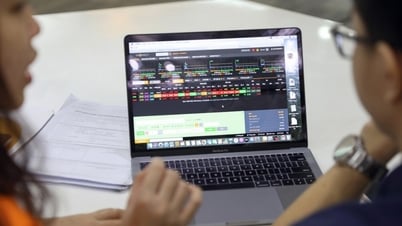





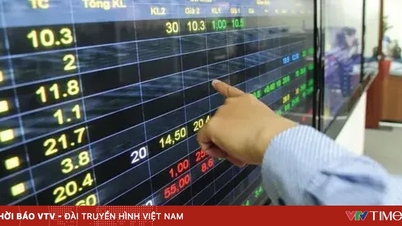

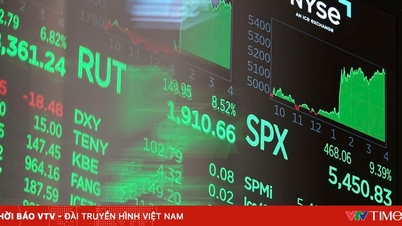


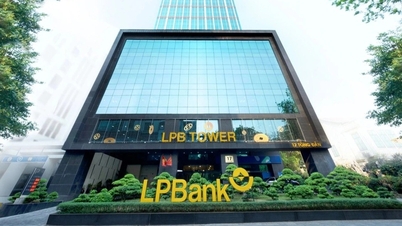














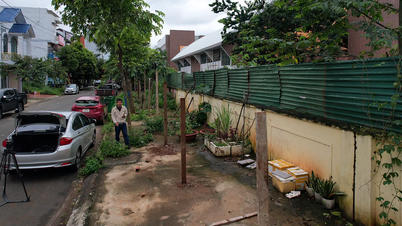



































































Comment (0)